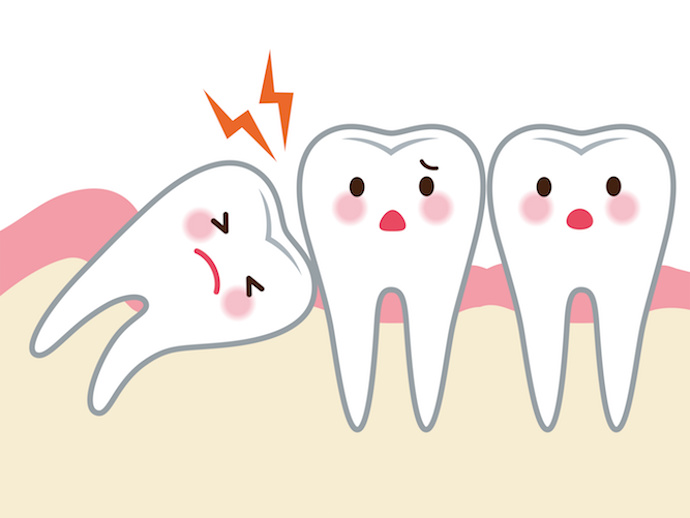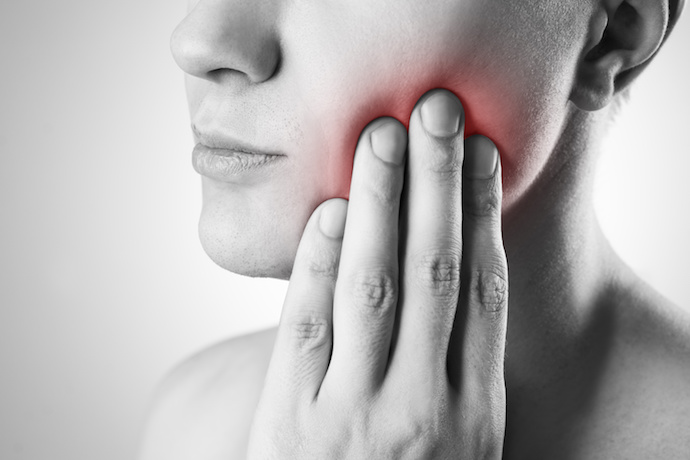Wisdom Teeth – All You Need To Know
Wisdom Teeth Explained
Adults can have up to 32 teeth; the last four teeth to appear are often your wisdom teeth which erupt at the very back of the mouth usually between the ages of 17 and 25, but this can be much later.
Before they erupt the wisdom teeth sit below your gum often lying horizontally or at an unusual angle. For most people their jaws are not big enough to allow enough space for these wisdom teeth to erupt into the mouth, so often they don’t come through and if this is the case people generally don’t experience any problems.
For others the wisdom teeth do erupt and people can either experience mild discomfort or have more pain and problems relating to the eruption of these teeth.

The most common problem is when the wisdom teeth become impacted.
The most common problem is when the wisdom teeth become impacted. Either the wisdom teeth are colliding with the molar tooth in front or they partially come through and the overlying gum can become sore and swollen. In these cases bacteria and food can get caught and collect under the overlying gum causing swelling and pain. Infection of the gum tissue can occur as a result.
It is, therefore, vital that people who have partially erupted wisdom teeth always pay special attention to these teeth and follow a thorough oral care routine. However, when the gums are swollen it can be difficult and painful to clean these areas.

People can either experience mild discomfort or have more pain and problems relating to the eruption of wisdom teeth.
If the gum is swollen and painful you can mix your own mouthwash using a combination of warm water with a teaspoon of salt dissolved into the water. Swish the salt water mixture around the mouth, concentrating on swishing it to the area of the impacted wisdom tooth. This will provide some relief from the pain and soreness. Painkillers such as paracetamol and ibuprofen (Nurofen) can also help in the short term. If the pain persists and there is trouble opening the mouth then you should make an appointment to attend your dentist.
In some cases, the troublesome wisdom tooth may need to be extracted. This can be undertaken either at your local dental practice or with a specialist oral surgeon in either the dental practice or at hospital. The tooth can be removed with either local anaesthetic or sedation.
After removal of a wisdom tooth you will experience tenderness and discomfort for which painkillers and rest will help. You should avoid any smoking or alcohol after the extraction as this can affect your healing. Also avoid hard crunchy foods, a soft diet is much more comfortable after surgery. Sometimes stitches are placed to help healing, these are often removed 1-2 weeks after the tooth has been extracted when the dentist will see you for a small check up.
If you have any concerns about your wisdom teeth or any aspect of your oral health, please contact our friendly reception team on 0121 7052705 to make an appointment.

